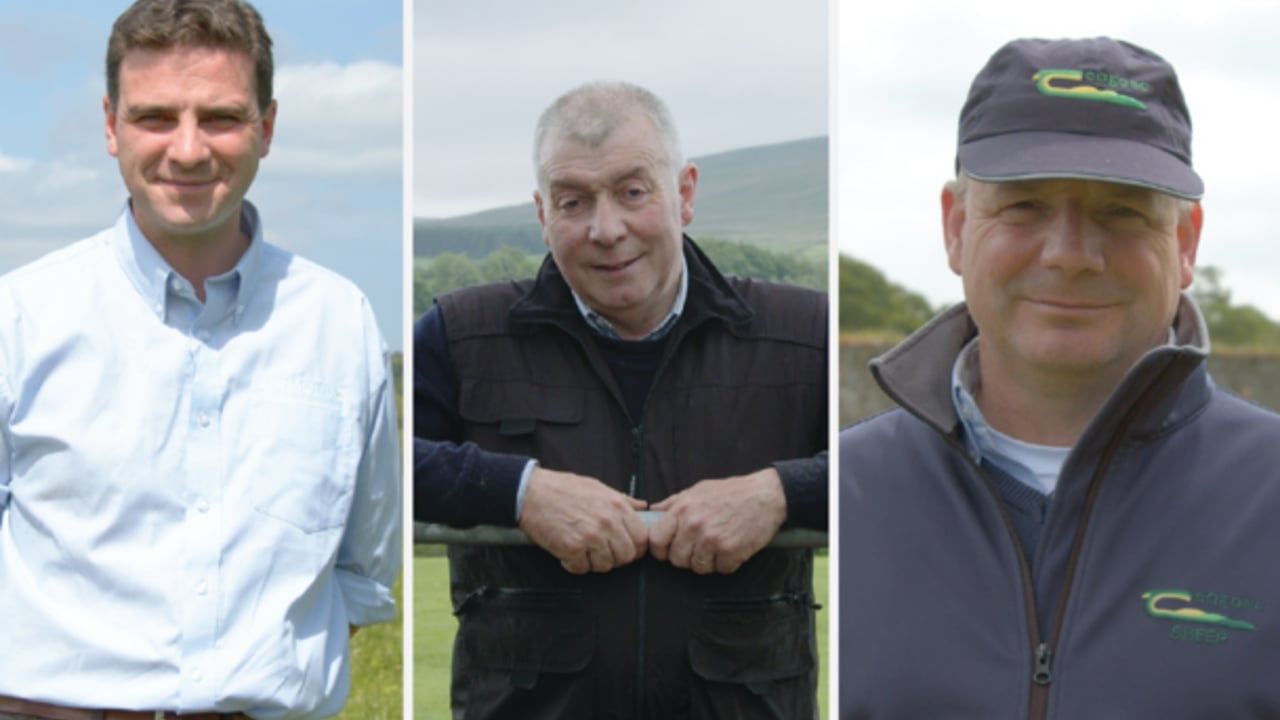Flock Forwards, not Backwards Series


Agriland and Elanco to launch 'Flock Forwards, not Backwards' series
Irish sheep farmers are in the business of producing the best quality lamb, in the most efficient way.
Here in Ireland, we are lucky to be able to achieve the growth rates necessary for this, primarily from the cheapest available resource - grass.
However, grazing sheep are naturally exposed to gut worms and, if left uncontrolled, these worms will have a negative effect on lamb performance. This has detrimental effects on growth rates, animal welfare, and the farm’s bottom line.
Over the years, managing worms on Irish farms has relied heavily on the administration of anthelmintics.
Anthelmintic, or wormer, resistance has been shown to be common on Irish sheep farms and is defined as the ability of worms to survive the normal dose of a wormer and pass that ability on to its offspring.
In 2015, the existence of multi-class - white, yellow and clear - resistant worms was demonstrated. Therefore, to slow the further development of wormer resistance in the national flock, it is imperative we develop a clear strategy for long-term management of worms at a farm level.
In episode one of the Flock Forwards, not Backwards Series, we visit Co. Derry sheep farmer, Clement Lynch.
Elanco Animal Health key account manager, Niall Claffey, and Lynch discuss what practices he carries out to deliver successful worm management.
Lynch is a firm believer in regular weighing during the grazing season, which allows him to monitor daily live weight gain in his lamb crop.
This, coupled with regular Faecal Egg Count (FEC) testing and checking the Nematodirus Forecast online, ensures he has a demonstrated need to worm his lambs.
This consistent monitoring allows Lynch to make the best decisions possible on whether to dose or not, therefore saving him money on anthelmintics that are not needed and will be of no benefit to the lambs.
The Derry-based farmer also includes a class 4 orange wormer as an annual mid-late season break dose every year to remove worms left behind by previous treatments, helping lambs achieve their growth potential faster.
Rams that are purchased for the breeding season also receive the orange wormer as a quarantine dose to avoid bringing resistant worms onto the farm.
In the second installment, Elanco technical consultant, Brian McConnell, speaks with vet, Kieran Devaney, of Ormonde Veterinary in Co. Kilkenny.
Devaney touches on the differences between antibiotic and anthelmintic resistance, noting the latter as one of the biggest challenges facing the Irish sheep sector.
He stresses the importance of incorporating the class 4 orange wormer into worm control plans to preserve other wormer classes.
Devaney details how to take a faecal egg sample correctly, to ensure accuracy and the importance of carrying out a faecal egg reduction test or a drench test to check product resistance levels on individual farms.
In the third and final episode of the Flock Forwards, not Backwards series, McConnell chats with Michael Gottstein, head of sheep knowledge transfer at Teagasc.
Gottstein speaks about the presence of Haemonchus Contortus – a worm that was not generally seen in Ireland. He advises how to identify the parasite, its common symptoms, and suitable treatment protocols.
Gottstein provides advice around the dosing of ewes and hoggets before explaining how newer generation wormers are highly effective on Irish sheep farms and should be incorporated into the farmers’ worm control plan.
McConnell and Gottstein discuss the common pitfalls farmers fall into when it comes to dosing their animals, such as lamb weight accuracy and under-dosing.
He also touches on the four key actions derived by industry stakeholders that sheep farmers are advised to adhere to in order to slow the development of anthelmintic resistance which will help protect their sheep enterprises going forward.
The series will go live on all Agriland platforms over the next three weeks.
References are available here.


